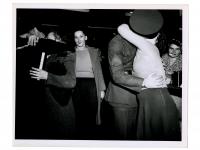Before World War II began in 1939, America and much of the world was in the midst of an economic depression. Once war efforts began, young men from around the country enlisted, thus creating openings for various types of factory jobs. These vacancies, combined with an all time high of unemployment rates, set the stage for a large quantity of women to join the labor force. Manufacturing companies that were major producers of consumer goods refocused their efforts to aid Allied Powers during the war. As battle in the European and Pacific theaters intensified, radio producers, electric companies, and many other manufacturers began to assemble supplies for the military.
To keep up with the increasing demand of materials, war workers in American plants dedicated themselves to long hours and difficult, manual labor. In order to show gratitude and support, frequent rallies were held at these manufacturing companies. Boosting morale and increasing production rates were high priorities of these events. Often times, wounded veterans and high ranking officers gave speeches to relay their personal war time experiences. Detailed stories of unlikely survival created a bond between soldiers and war workers in which the importance of production was reiterated. During these talks, it was common for employees to be asked to raise their hands indicating they had family or friends somewhere in the service. This also strengthened efforts and morale, while increasing the likelihood of war bond sales.
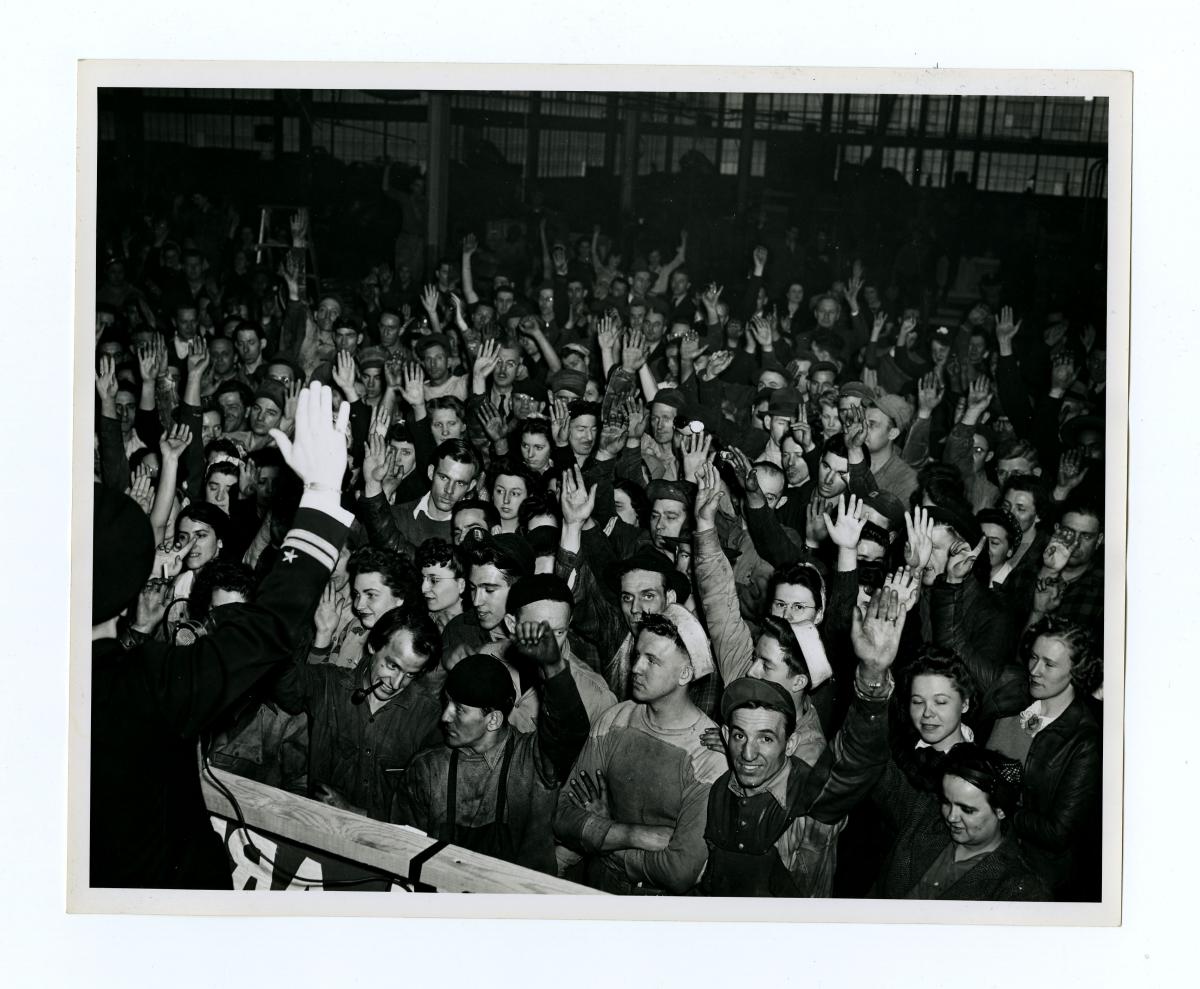
Military personnel also frequently received factory tours in which they witnessed different production processes, conversed with employees, and even took their turn at handling the machinery.
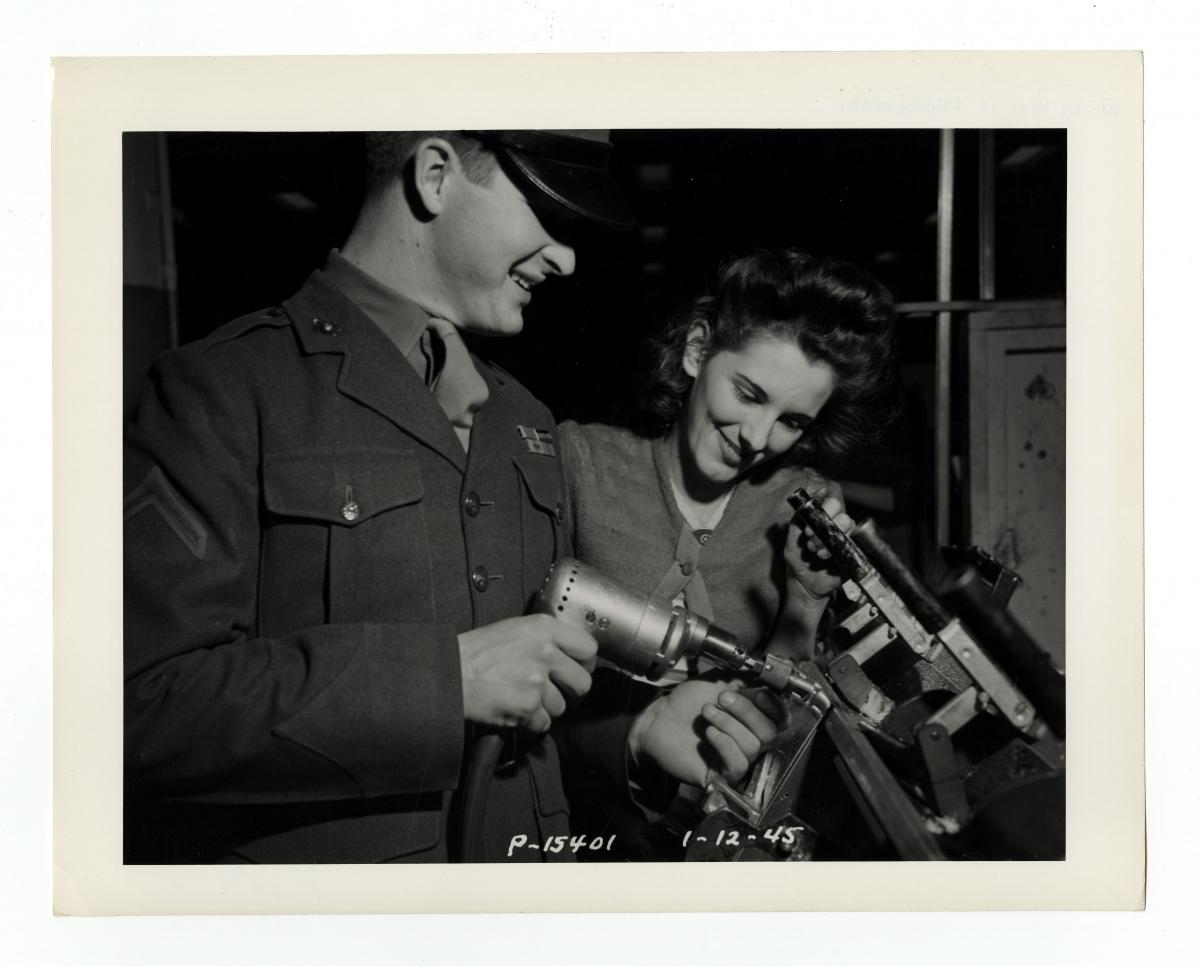
Interacting with war workers was vital to the success of maintaining positive work atmospheres and high manufacturing rates. This also kept the spirits of veterans high, particularly when touring alongside female employees. What once seemed bleak and uninteresting, quickly grabbed the attention of these military men. One might even be convinced they were genuinely interested in how the tools worked.
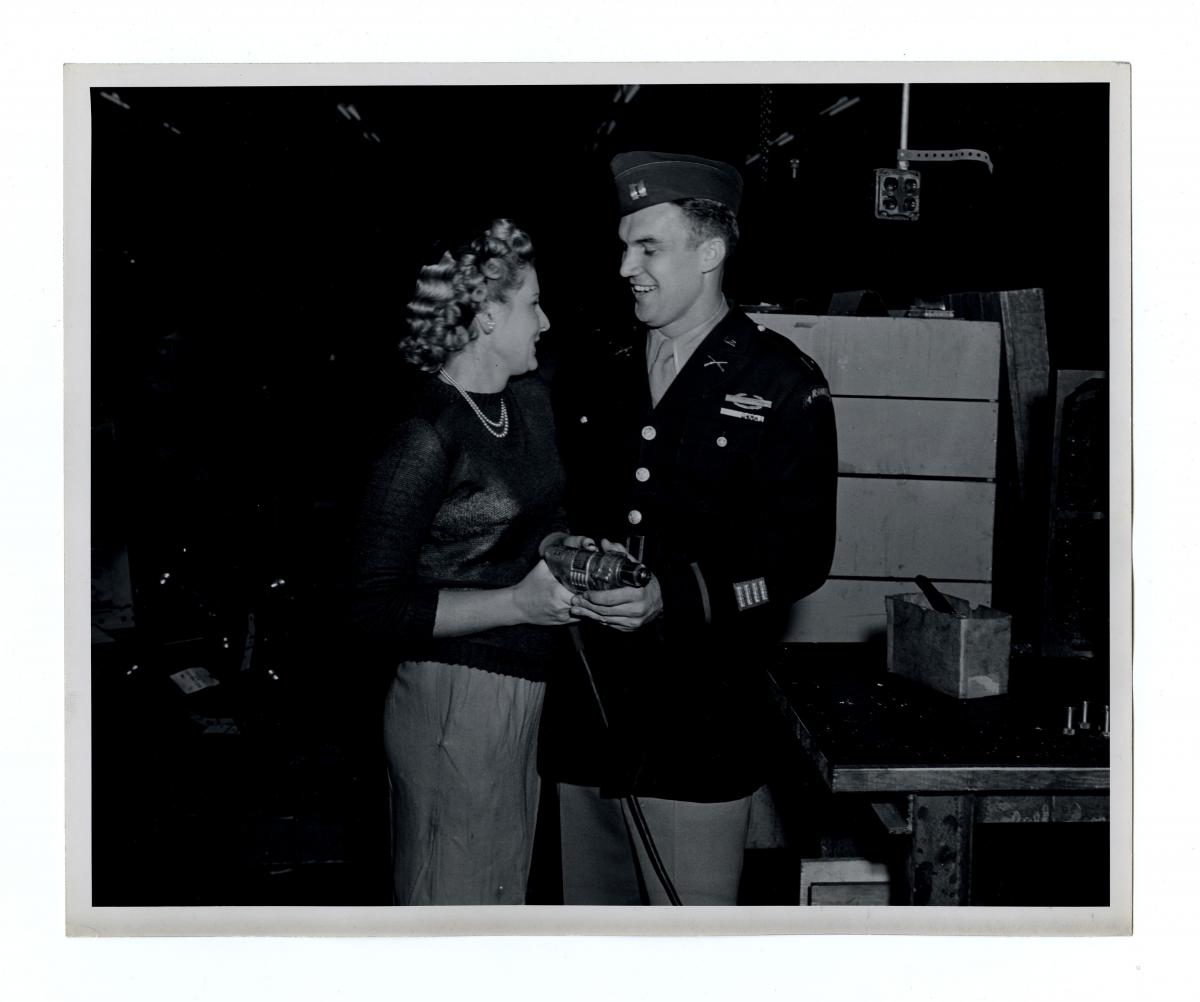
It doesn't take long to realize the true interests of the soliders. Simply track their smiles and eyes and this becomes obvious. Nothing is as apparent when veterans and employees are seen taking a break from the tour to embrace in a kiss.
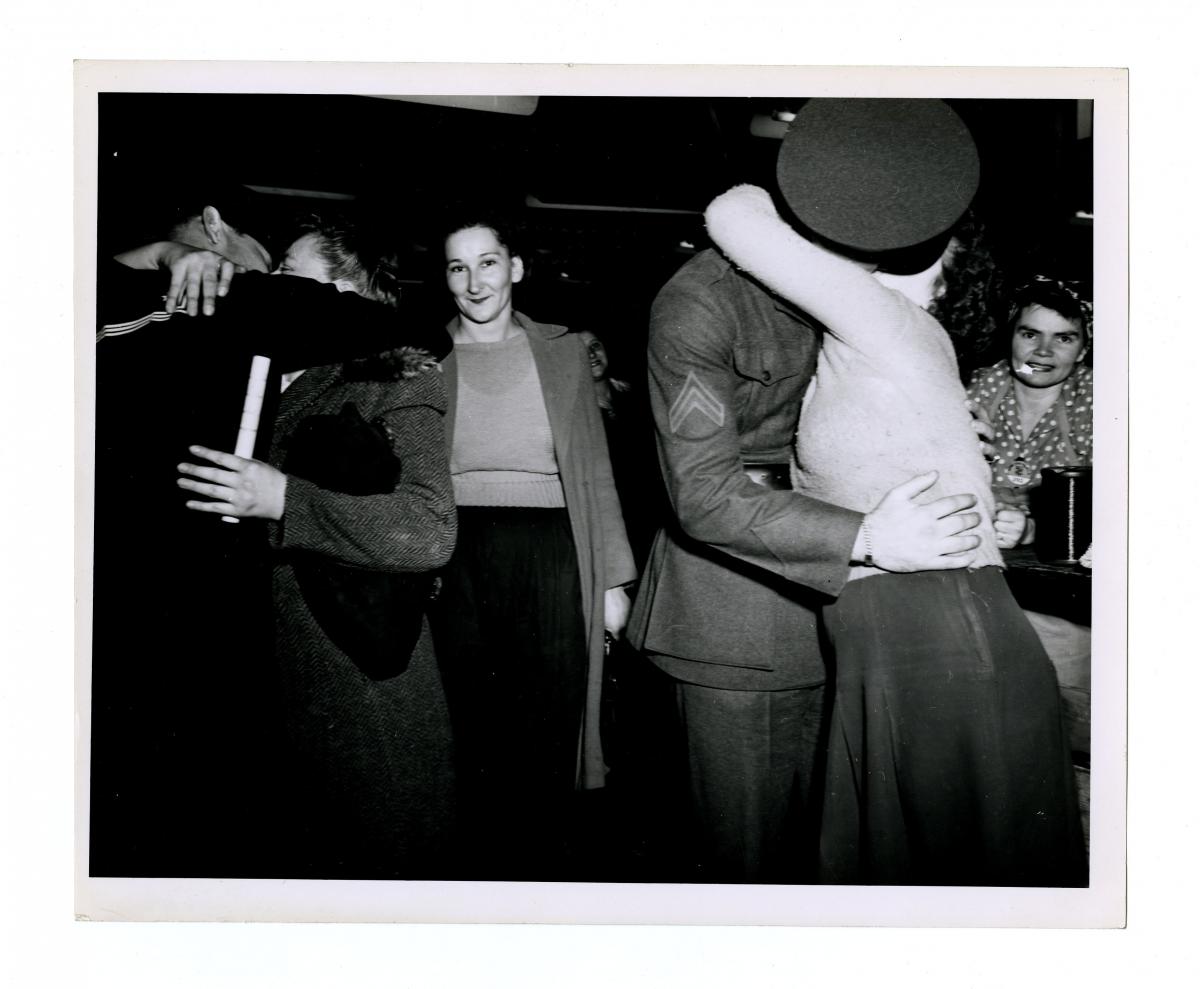
The question then becomes: "whose morale was being boosted?" This is not an easy question to answer, as it looks like the manufacturing plant tours were enjoyable for all--maybe this was the true cause of increased production rates. Whatever the case may be, the home front efforts by men and women war workers were vital to meeting the high demand of military materials.

